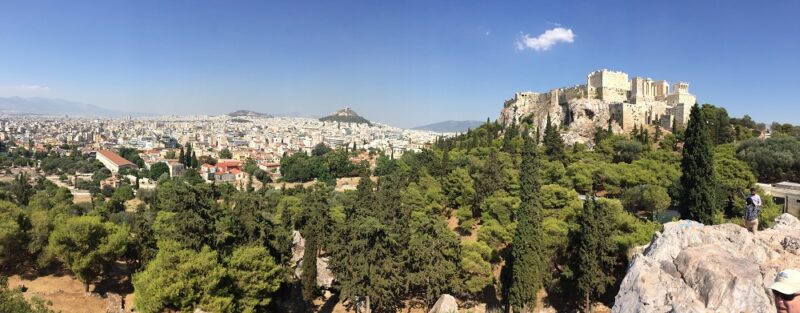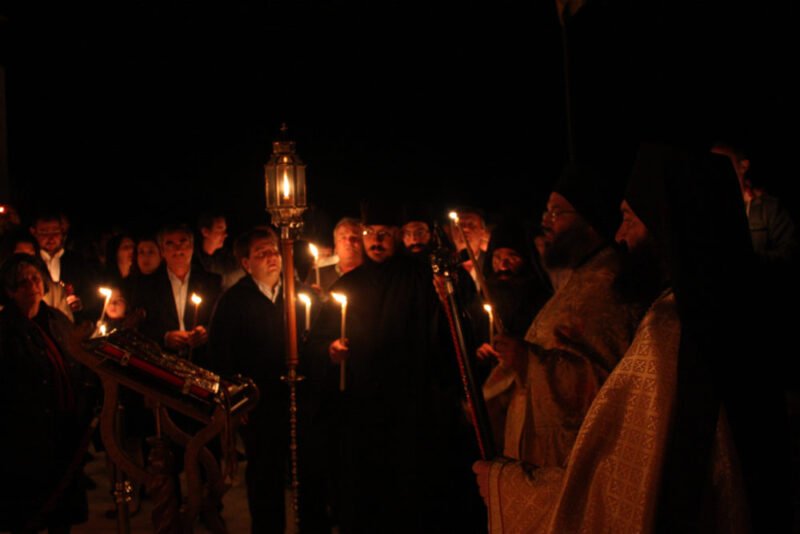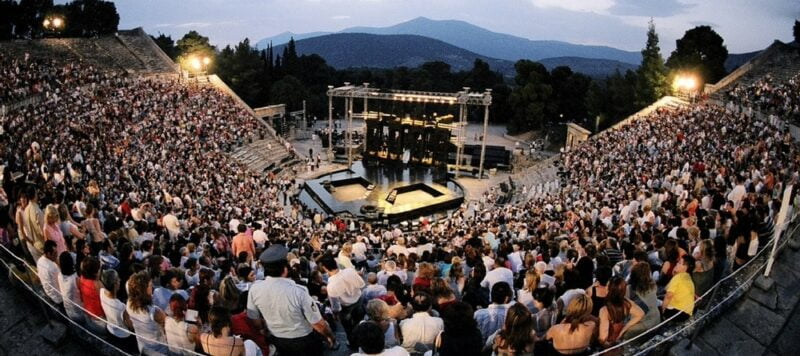Melina Mercouri, the famous Greek actress and politician, left her mark on her country’s history. So much so that March 6, the anniversary of her death, has been designated by UNESCO as World Culture Day.
In honor of Melina Mercouri, every year on March 6, admission to state museums and archaeological sites is free!
So take advantage of Melina Mercouri Day to visit some of Greece’s free public sites and museums.
On March 6, here are some suggestions for free visits in Athens:
- Visit the Acropolis
- The Acropolis Museum
- The ancient Greek Agora
- The Temple of Zeus or Olympeion
- The Keramikos site and museum
- The Roman Agora
- The Athens Archaeological Museum
- EMST: Athens National Museum of Contemporary Art
- Piraeus Archaeological Museum
- …
And elsewhere :
- Poseidon’s temple at Cape Sounion
- The archaeological site of Delphi
- Epidaurus and its theater
- Mycenae
- Olympia
- …
But before you go and visit these sites and museums for free, you might want to ask yourself this question: Who is Melina Mercouri?
Melina Mercouri, a Greek heroine
Granddaughter of Spyridon Mercouris, who was mayor of Athens for several decades, and daughter of the youngest Greek MP at the time, Melina Mercouri was born on October 18, 1920.
To escape her family environment and satisfy her need for freedom, she moved to Paris in the early 1950s, where she became friends with Cocteau, Sartre, Colette, Dalí… She acted in the theater, with varying degrees of success. Then, in 1955, she found fame with Michael Cacoyannis’s film Stella. At Cannes that same year, her path crossed that of Jules Dassin (Joe’s father). She became the filmmaker’s muse, then his wife in 1966.
In 1960, she made the film Never on Sunday with Jules Dassin, which catapulted her to international stardom. Her role as Ilya won her the Best Actress award at Cannes, and she was nominated for an Oscar for Best Actress. In this film, she also sang the famous song Children of Piraeus which won her the Oscar for Best Original Song in 1961.
When the colonels came to power in Greece in 1967, Melina Mercouri publicly opposed the regime. She fought against the junta and was forced into exile. She was stripped of her Greek nationality and property. Also, she was ex-communicated by the Orthodox Church, which criticized her for marrying a Jew.
“I was born Greek and I’ll die Greek. Mr. Pattakos was born a fascist. He will die a fascist.“
Melina Mercouri in the face of dictatorship
Melina Mercouri and politics
When the colonial regime collapsed in July 1974, Melina Mercouri returned to Athens. She was triumphantly welcomed by the Greek people.
Her career took a new direction. She became involved in politics. She was first elected to Parliament in 1977. Before becoming Minister of Culture from 1981 to 1989 and again from 1993 to 1994. She created the concept of “European Capitals of Culture”, with the aim of “helping to bring the peoples of Europe closer together”. And as Minister, she also led the fight (still going strong today) for that the Parthenon frescoes held by London’s British Museum be returned to Greece. It’s still a topical issue, isn’t it?
In addition, the UNESCO-Greece Melina Mercouri International Prize is dedicated to the safeguarding and management of cultural landscapes. Created in 1995, the prize recognizes outstanding examples of action to safeguard and enhance the world’s cultural landscapes.
On March 6, 1994, in New York, Melina Mercouri died of lung cancer. The Greeks mourned their heroine and offered her a day of free culture for all on March 6.
Always present in Greece…
Melina Mercouri has left her mark on Greece. In fact, throughout Greece, there are many streets named after her, as well as cultural centers, theaters, art galleries, parks and even cafés.
In Athens, you can also admire his bust along Vasilisis Amalias Avenue, opposite Hadrian’s Gate.
And if you want to discover her acting talents, you can watch these Jules Dassin classics:
- Never on Sunday (1960) (in Greek with English subtitles)
- or Phaedra (1962) (in English)
And would you like more suggestions on how to take advantage of free state museums and archaeological sites? Click on this link The 20 UNESCO-listed sites in Greece, and don’t hesitate to check the opening conditions on the official websites before you go.
Laure M. and Celine P.




